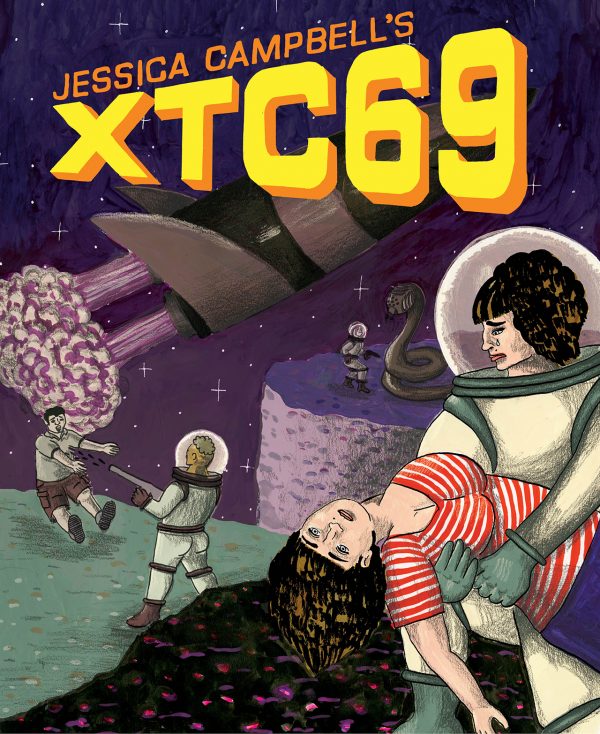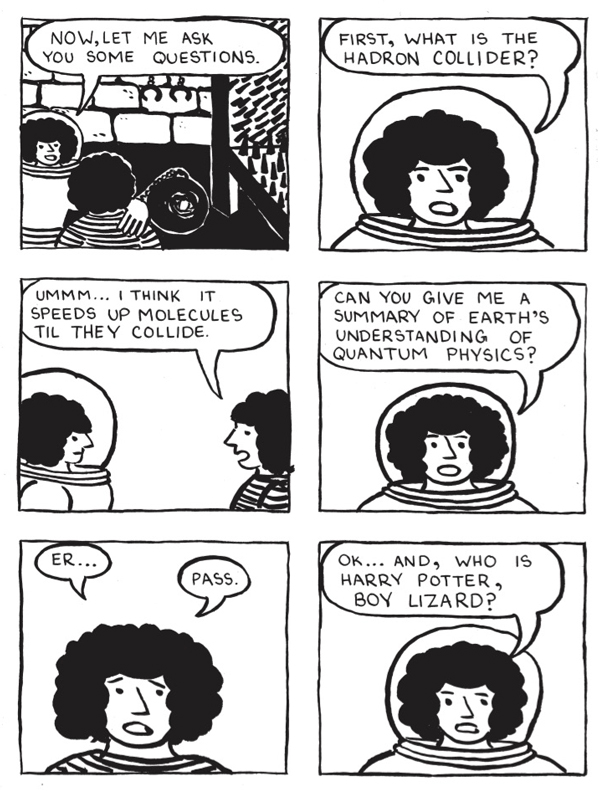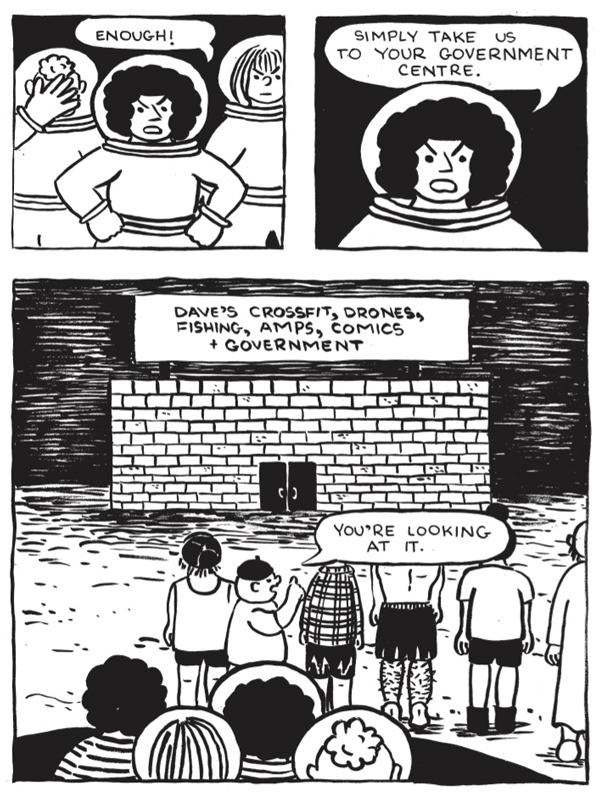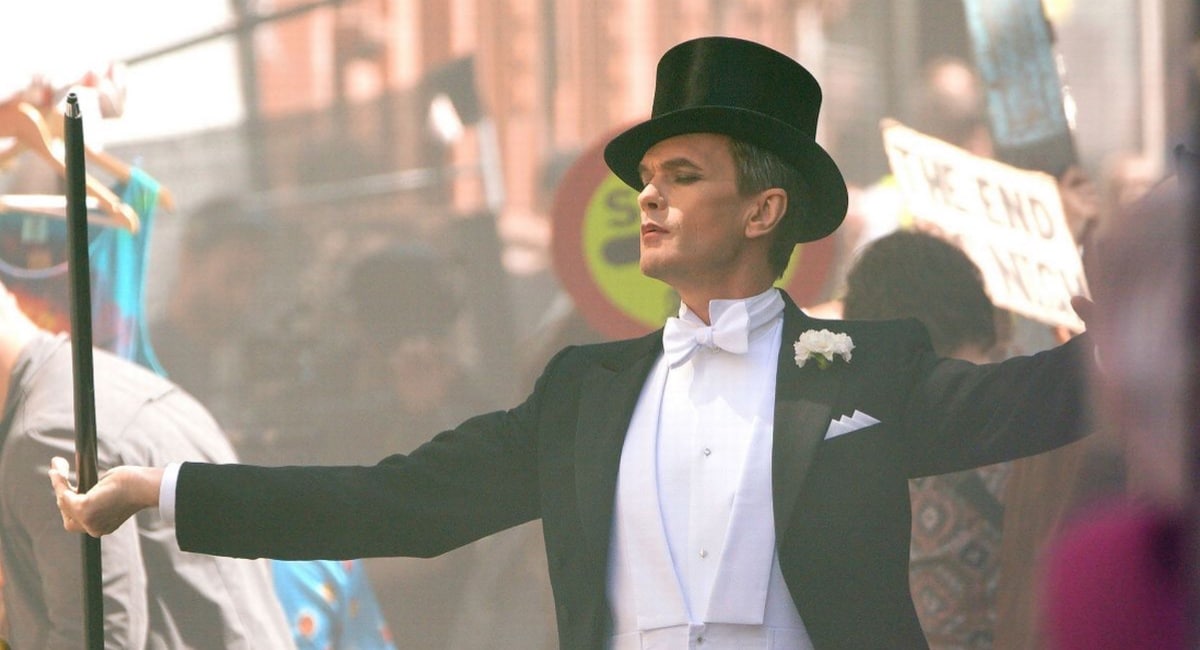Jessica Campbell has gotten plenty of attention with her sharp cartoons examining the art world through the lens of gender politics. Her attitude, part take-no-prisoners and part don’t-mind-me-self-deprecation makes for some singular, honest, and hilarious examinations of not just the historical male domination of art, but the double standards that became the roadblocks for women artists.
In XTC69, Campbell continues her gender examinations but takes it to the world of science fiction, a genre that routinely embraces extremes in its depictions of societies and personal attitudes — see any dystopian fiction in the last 15 years — to create some form of fable offering well-meaning lessons in living together. Think of any episode of Star Trek and the function of each planet it visits as the setting of a cautionary tale.
Campbell starts that conceit off with a visit to Earth, where humanoid alien space explorer of the future Jessica Campbell discovers the fictional avatar of our Jessica Campbell, who has survived a worldwide disaster and the end of the human race for hundreds of years. This Earthly Campbell is sweet, dopey, and, as she realizes her fate, touchingly human.
It turns out that the crew of XTC69 is seeking out men to mate with, after an unnamed circumstance on their planet that lead to the disappearance of all men. Our Jessica Campbell, now known as JC2, accompanies the crew on their search to find the answer to their biological dilemma.
The reason for the lack of men is eventually revealed, and it’s a telling moment of Campbell’s multi-faceted humor about gender. Without giving anything away, the explanation is a cautionary tale within a cautionary tale, where acceptance and understanding pave the way for extinction, but this planet of women would rather go to impossible galactic extremes to save themselves than hurt anyone’s feelings.
When the crew lands on an all-male planet, the self-destructive empathy of the woman’s planet is matched by an out-of-control, hostile, self-assured misogynistic attack culture that is as timely and right on as it is funny. It’s sure to offend some sensitive males and I should point out that not all men … nah, never mind.
For the crew, Campbell applies stereotypical attributes, which means that there is much traditional male posturing and quipping going on — a gender flip, in its simplest terms. This is taken to its logical extreme by the end of the book when the crew encounters the perfect solution to their problem in the cliched form of a couple of naked aliens from another planet — no spoilers here, but consider the 1962 film Invasion of the Star Creatures after you finish the book.
Gender role juggling for humor is entirely the point here, but Campbell doesn’t take it just one way, and in the end, she demonstrates that men and women may have a lot more common ground than is acknowledged. Not that her presentation of misogyny is wrong — in fact, it’s chillingly prescient — but somewhere in the extremes, Campbell fashions a middle ground where all solutions as currently acted out present their own set of problems. And she makes you laugh pretty hard even as she casts a critical net over everybody, including you.











Comments are closed.